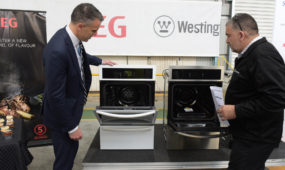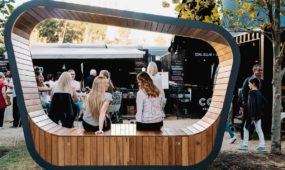Australian tillage system proves suitable for Africa
Manufacturing
Africa is looming as the next major market for a South Australian tillage system that is proven to control weeds, improve soil health and manage residues.

Sign up to receive notifications about new stories in this category.
Thank you for subscribing to story notifications.
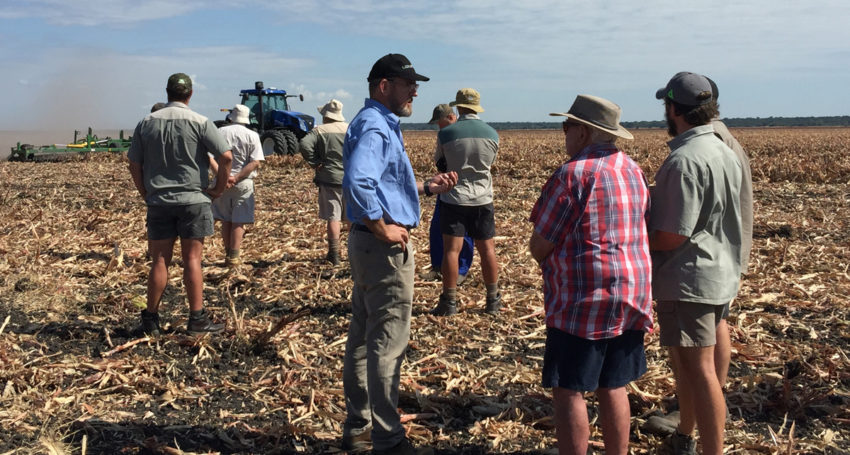
Kelly Engineering exhibited products including its Diamond Harrow tillage system at last month’s NAMPO Harvest Day in Bothaville, South Africa, and is looking to ramp up its presence across the continent.
Manufactured in the South Australian outback town of Booleroo Centre, Kelly Engineering has been selling its Australian made tillage systems in North America and Europe for several years and has established relationships with contract manufacturers in Germany and the United States.
The Diamond Harrow’s unique design offers a wide array of cost effective benefits including residue management, weed control, soil improvements and moisture management in a single pass.
Kelly Engineering has sold its tillage systems in more than 25 countries with the United States accounting for about 60 per cent of its orders.
Its Diamond Harrows have been manufactured under contract in the United States since 2010 where it has sold almost 2000 systems.
The first six Diamond Harrows manufactured under contract in Germany have just been released on the European market.
Managing Director Shane Kelly said building the systems in Australia and shipping them half way around the world resulted in long lead times and other inefficiencies as volumes grew.
“So we revised the business model to source a supply chain locally while still running our IP and management out of Booleroo,” he said.
“For instance, the majority of what we sell in the US is now made there and we manage the supply chain from Australia.
“That model then is replicable for Europe because it’s a much lighter load on working capital and lead times.”
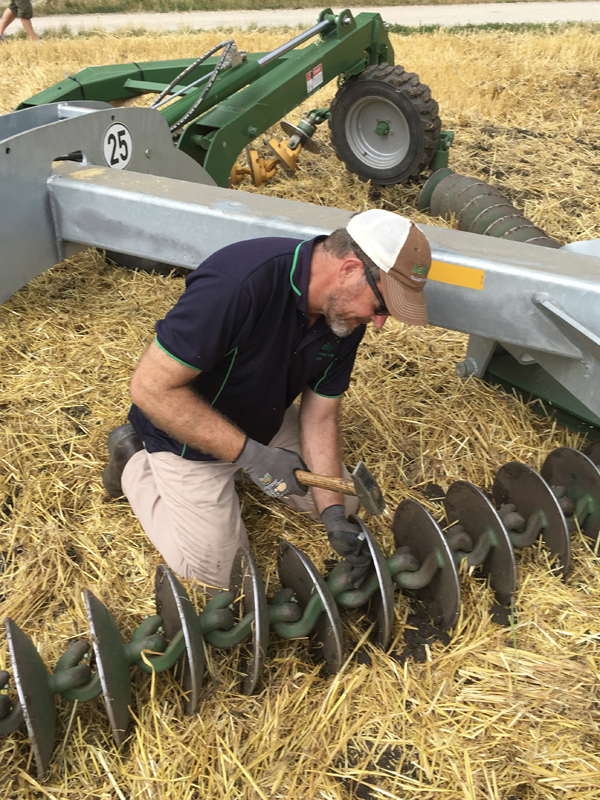
Shane Kelly making adjustments to a 6m Diamond Harrow in eastern Austria.
As well as exhibiting at NAMPO Harvest Day in Orange Free State, Kelly Engineering also ran demonstrations for farmers in Botswana and Bothaville last month.
The company already has its Australian made systems in South Africa, Botswana, Zambia, Kenya, Uganda and Sudan and Shane said Africa was the next logical expansion target.
He said the African market was more independent than Europe or America because farmers were used to importing their own equipment.
“Farming is still a very conservative industry in a lot of places so people want to be confident, especially with a new, unusual looking product or a new concept like our Diamond Harrow,” he said.
“Typically we’ll sell one or two machines in a year and the next year it will be six and then exponential growth. It’s about a five-year lead in period and that’s been the case everywhere we but we see it as happening a little bit quicker in Africa.”
The patented Diamond Harrow uses four chains lined up in a diamond formation to allow the machine to prepare the seedbed in rough fields.
Each chain is fitted with a crop-specific row of metal discs that rotate and penetrate the soil. The design also allows the machine to work the soil, attack crop residue, manage weeds and initiate better microbial action in the soil by decomposing residue in the top layer, allowing access to more sunlight.
Sorghum growers in northern Botswana, which has similar growing conditions to the sorghum regions in northern New South Wales in Australia, have had success with the Kelly system and the company is hoping to use that to tap into a similar enclave in Zambia.
Shane said Kelly Engineering had a representative in South Africa and had been impressed with the level of informed inquiry among potential buyers.
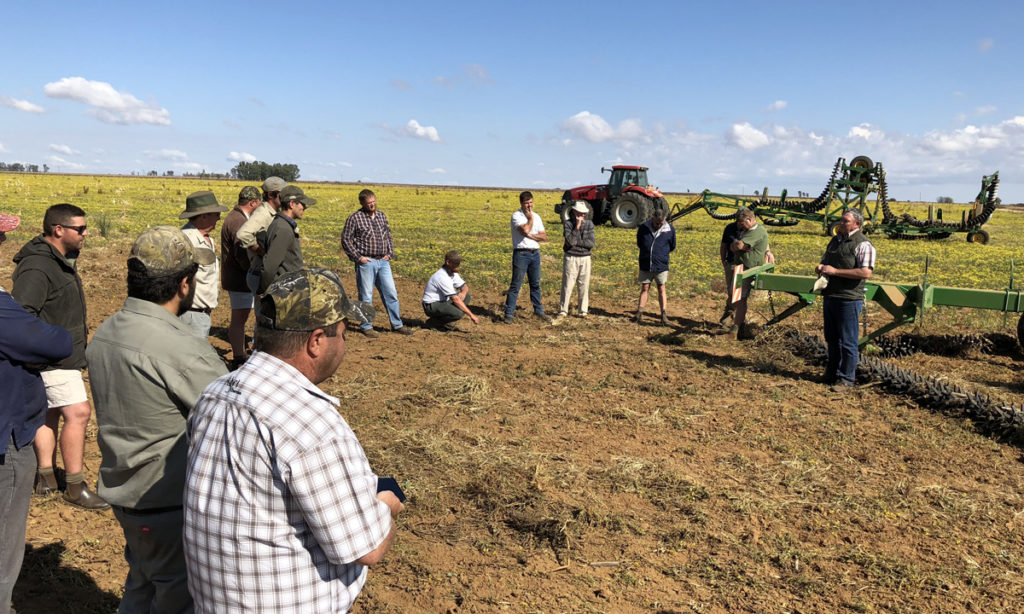
A field demonstration of Kelly Engineering’s Diamond Harrow in Bothaville, South Africa, in May, 2018.
“There’s no one African market, there’s lots of small markets – and we’ll watch that space with the same process (as the US and Europe),” he said.
“When volume reaches a certain point it will be logical to build locally and we will look for a partner over there but it will depend on the ability to find a quality manufacturer and how our other three markets of Australia, the US and Europe are tracking.
“We’ve just been to Africa to get a start – it will take two to five years to get to volume but if we don’t start now it won’t happen. So far it’s been very positive and we can see that growing into quite a sizeable market.”
Jump to next article


